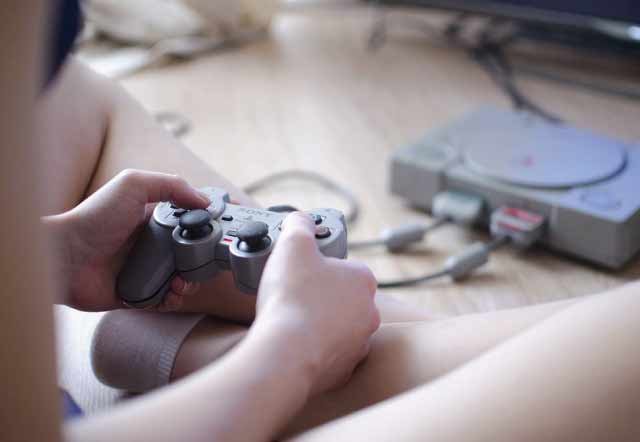Hey there, and welcome as will explore the top 5 mistakes after knee replacement. If you or someone you know has recently undergone knee replacement surgery, congratulations on taking the first step toward regaining mobility and kicking discomfort to the curb. Knee replacement can be a game-changer, but as with any game, there are rules to follow.
We all know that making mistakes is a part of life, but when it comes to knee replacement, avoiding certain missteps can make a world of difference. In this article, we’re going to explore the essential things you need to be mindful of after your knee replacement surgery. These are the “top 5 mistakes after knee replacement” that you’ll want to steer clear of to ensure a smooth and speedy recovery.
Understanding the Importance of a Successful Knee Replacement Recovery
You’ve just had your knee replaced, and you might be feeling like a brand-new person already. It’s an exciting time, but the importance of a successful recovery can’t be overstated. So, why is it so vital to get this recovery thing right? Well, let’s break it down.
A successful recovery sets the stage for the rest of your life. It means less pain, more mobility, and a higher quality of life. But here’s the catch: you can do everything right during surgery, but if you slip up in the recovery process, you might end up taking a few steps backward. That’s why understanding and avoiding the “top 5 mistakes after knee replacement” is key.
Imagine being able to get back to doing the things you love without discomfort holding you back. Whether it’s going for a leisurely walk, playing with your grandkids, or hitting the golf course, a successful recovery after knee replacement can make all these activities a reality. And to make that a reality, you’ll want to stay away from those common blunders.
So, let’s get started on this exciting path to a better you!
Also see: 54 Mind Blowing Facts About The Teeth You Don’t Know
Common Mistake #1 – Neglecting Physical Therapy

Alright, here we go, the first of the “top 5 mistakes after knee replacement.” Mistake numero uno – Neglecting Physical Therapy. So, why is this a mistake?
Physical therapy is like the secret sauce to a successful knee replacement recovery. Skipping or neglecting it is like ordering a burger without the patty; it just won’t work. When you bypass your physical therapy sessions, you’re missing out on a crucial part of your healing journey.
Now, let’s talk about the potential consequences. If you neglect physical therapy, you might find yourself struggling with stiffness and limited mobility. Your knee might not bend or straighten as it should, and that’s not what you signed up for, right?
To avoid this mistake, it’s simple – don’t skip your physical therapy sessions! Your therapist is there to guide you through exercises that will help you regain your strength and flexibility. They’ll tailor the exercises to your needs, so it’s like having a personal trainer just for your knee.
So, ensure you take your physical therapy seriously and show up for those sessions. It’s an investment in your future mobility, and it’s one of the top ways to ensure your knee replacement is a success. Remember, no pain, no gain. But in this case, it’s more like “no therapy, more pain.” Don’t fall into this trap; your knees will thank you later.
Also see: 10 Warning Signs of Mold Toxicity You Should Never Ignore
Top 5 Mistakes After Knee Replacement #2 – Ignoring Post-Operative Care Instructions
Here we are, delving into the second common blunder on our list of “top 5 mistakes after knee replacement” – Ignoring Post-Operative Care Instructions. It might seem tempting to brush off those care instructions and go with the flow, but it’s a mistake you’ll want to avoid.
So, what’s the big deal with ignoring post-operative care instructions? Well, here’s the scoop. These instructions are like the roadmap to your recovery. They’re carefully designed to ensure that your newly replaced knee heals properly and without complications. Disregarding them is like driving without following GPS instructions – you’ll likely get lost.
The risks of ignoring these instructions can include infection, delayed healing, and even the possibility of damaging your new knee joint. Yikes! We definitely don’t want any of that.
To keep yourself on the right track, follow your post-operative care instructions to the letter. This means taking prescribed medications, watching out for signs of infection, and knowing when and how to apply ice and elevate your leg. If your surgeon advises you to avoid certain activities, pay attention!
It’s not rocket science; it’s about safeguarding your knee replacement investment. So, don’t let this mistake set you back. Pay attention, follow those care instructions, and ensure your knee replacement recovery is as smooth as possible. Your future self will thank you for it!
Common Mistake #3 – Overexerting Yourself Too Soon

The third pitfall in our journey of the “top 5 mistakes after knee replacement” – Overexerting Yourself Too Soon. It’s a classic case of “eager beaver” syndrome that can put a damper on your recovery. Let’s break it down.
Picture this: you’re feeling better after your knee replacement surgery, and you can’t wait to get back to your regular activities. But here’s where the mistake happens – going from zero to a hundred too quickly. Overexerting yourself might seem harmless, but it’s not.
The impact of overexertion during recovery can lead to increased pain, swelling, and potential damage to your new knee joint. Think of it as trying to run a marathon when you’ve only just started walking again. It’s a recipe for trouble.
So, what’s the solution? Take it slow and steady. Follow your doctor’s advice and ease into physical activities. Gradually build up your strength and flexibility. Start with gentle exercises, like walking or swimming, and then work your way up to more strenuous activities.
Remember, your knee replacement is a marathon, not a sprint. The goal is long-term success, and rushing it can set you back. By avoiding this mistake, you’re ensuring a smoother recovery and a brighter, pain-free future. Your knee will thank you for it!
Also see: 21 Ways To Get Rid of Stretch Marks Very Fast Naturally
Mistakes #4 – Poor Nutrition and Hydration
The fourth pitfall in our list of “top 5 mistakes after knee replacement” is poor Nutrition and Hydration. This might not be the first thing that comes to mind when you think about knee surgery, but it’s a biggie. Let’s talk about it.
Your body is like a well-oiled machine, and to keep it running smoothly, you need the right fuel. Poor nutrition and dehydration can throw a wrench in the gears of your recovery. It’s like trying to run a car on an empty gas tank; you won’t get very far.
Here’s why it’s a mistake: Your body needs the right nutrients to heal and repair itself. Without them, you might experience slower healing, weaker muscles, and more discomfort. In other words, it can make your recovery process feel like an uphill battle.
To avoid this mistake, focus on a balanced diet that includes plenty of protein, fruits, and veggies. Hydration is crucial too, so make sure you’re drinking enough water. It’s like giving your body the high-octane fuel it needs to zoom down the recovery highway.
By eating right and staying hydrated, you’re giving your knee replacement the best chance to succeed. It’s like turbocharging your recovery process, so don’t overlook this essential step. Your knee will thank you for the nutritious and refreshing support!
Also see: 200 Biology Jokes to Make You Laugh
Common Mistake #5 – Neglecting Emotional Well-Being
And here we are, at the final checkpoint of our journey through the “top 5 mistakes after knee replacement” – Neglecting Emotional Well-Being. You might be wondering, what does this have to do with knee surgery? Well, let’s dive in.
Recovery isn’t just about the physical aspects; it’s also about the mental and emotional ones. Neglecting your emotional well-being can be a significant mistake. Here’s why: Your state of mind plays a huge role in the recovery process. Feeling down, stressed, or anxious can slow down your progress and make the journey tougher.
So, what’s the solution? It’s all about taking care of your emotional health. You can do this by seeking support from loved ones, talking to a therapist, or even practicing relaxation techniques like deep breathing or meditation. Remember, a happy and positive mindset can boost your healing.
Your knee replacement journey is a team effort, and that includes your emotional well-being. So, don’t be shy about reaching out to friends, family, or professionals for support. It’s like having your own cheerleading squad to help you stay positive and motivated.
By avoiding this mistake, you’re not just looking after your knee, but your overall well-being. A positive attitude can go a long way in ensuring a successful recovery. So, let’s finish this journey on a high note and give your knee the love and support it needs!
Top 5 Mistakes After Knee Replacement – Concluding Thought
We’ve reached the finish line on our quest to uncover the “top 5 mistakes after knee replacement.” Remember, a successful knee replacement recovery isn’t just about the surgery itself but also about the journey afterward. Avoiding these mistakes is the key to ensuring you’re back on your feet, pain-free, and ready to embrace life to the fullest.
If you’re on this journey or know someone who is, share this article to spread the wisdom. And if you have questions or need guidance, don’t hesitate to seek professional help. Your knees and your future self will thank you for it!
So, here’s to a smoother, happier, and healthier road ahead, free from the “top 5 mistakes after knee replacement.” Stay positive, stay on track, and stay well
Frequently Asked Questions (FAQ) – Top 5 Mistakes After Knee Replacement
1. What are the “top 5 mistakes after knee replacement”?
- The “top 5 mistakes after knee replacement” are common errors people make during their recovery journey after knee replacement surgery. These include neglecting physical therapy, ignoring post-operative care instructions, overexerting themselves too soon, poor nutrition and hydration, and neglecting emotional well-being.
2. Why is physical therapy so important after knee replacement surgery?
- Physical therapy is crucial because it helps you regain strength, flexibility, and mobility in your new knee. Neglecting physical therapy can lead to slower recovery and may even compromise the success of your knee replacement.
3. What are the potential consequences of ignoring post-operative care instructions?
- Ignoring post-operative care instructions can lead to complications like infection, delayed healing, and possible damage to the new knee joint. These instructions are designed to ensure a safe and successful recovery.
4. How can I avoid overexerting myself too soon after knee replacement surgery?
- To avoid this mistake, it’s essential to follow your surgeon’s advice and gradually ease into physical activities. Start with gentle exercises and progressively build your strength. It’s all about taking it slow and steady for a successful recovery.
5. Why is nutrition and hydration important in knee replacement recovery?
- Proper nutrition and hydration are essential because they provide your body with the necessary nutrients to heal and recover. A balanced diet and adequate hydration support the healing process and help prevent complications.
6. How does emotional well-being affect knee replacement recovery?
- Your emotional well-being plays a significant role in recovery. Neglecting your mental health can lead to stress and anxiety, which may slow down your progress. Seeking emotional support and maintaining a positive mindset can improve your overall recovery experience.
7. Can these mistakes be avoided with professional guidance?
- Yes, professional guidance is essential in avoiding these mistakes. Your medical team, including your surgeon and physical therapist, can provide valuable advice and support throughout your recovery. They can help you navigate the challenges and ensure a successful knee replacement journey.
8. What should I do if I’ve already made one of these mistakes?
- If you’ve made one of these mistakes, it’s not too late to course-correct. Consult with your healthcare team, discuss the situation, and follow their recommendations to minimize any potential consequences. Your recovery can still be successful with the right adjustments.







